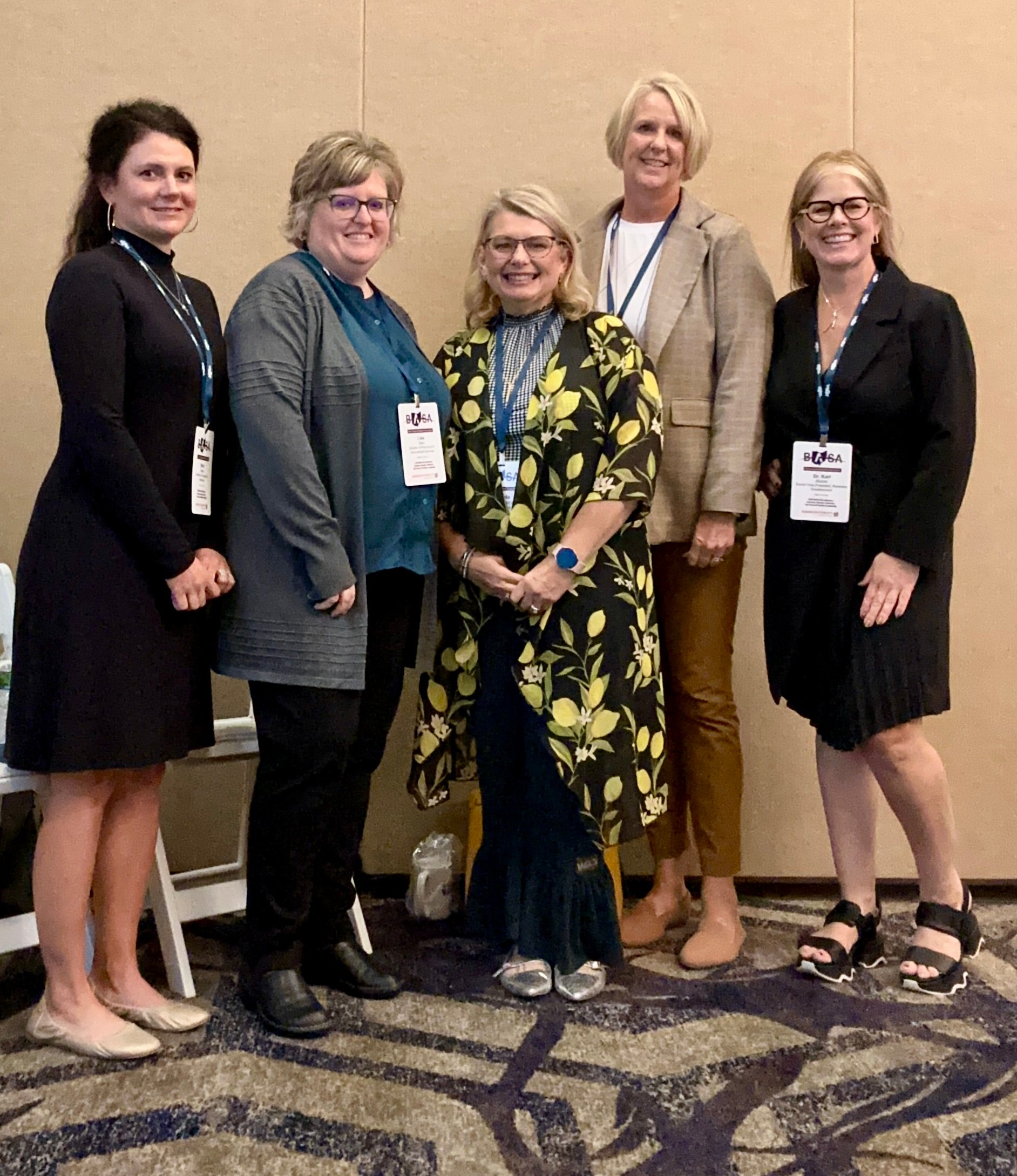Early Interventions for the Neurodiverse: Insights from the BASA Conference
At the October 2024 Buckeye Association of School Administrators (BASA) Conference in Ohio, district leaders came together to address a critical issue: ensuring equitable access to quality education for neurodiverse children.
The panel, “Early Interventions for the Neurodiverse,” explored the challenges facing educators and families today, especially in the wake of the pandemic. Discussions centered on new tools, approaches, and partnerships designed to build both academic and emotional resilience in students.
Reimagining Early Interventions
Supporting children with autism, ADHD, and related conditions requires schools to rethink early intervention models. Research shows that early, targeted interventions can significantly improve long-term outcomes for neurodiverse children, including language, social, and academic skills (National Research Council, 2020).
Dr. Kari Stubbs, Senior Vice President of Business Development at Stages Learning, emphasized that programs like the Academic Readiness Intervention System (ARIS) succeed because they pair high-quality tools with sustained partnerships:
“Our three-year partnership model means we are embedding ourselves into the DNA of the district, coaching educators to truly understand and apply ARIS to make an impact.”
ARIS: A Proven System for Academic Readiness
The Academic Readiness Intervention System (ARIS), developed by Stages Learning, was spotlighted for its role in equipping teachers to address diverse needs in the classroom. Recognized by the Ohio Department of Education and Workforce as fully aligned to Ohio’s Early Learning & Development Standards, ARIS ensures consistency with state expectations while offering flexible tools for local contexts.
Stacy Barker, Director of Curriculum & Instruction at Sidney City Schools, spoke to the value of the system:
“So many of our kids are coming into preschool with severe needs. It’s important that we have programs like ARIS to meet all of their needs. The training we received was key because teachers need to be equipped and supported to work with students with a range of learning styles.”
A recent evaluation found that districts using ARIS reported a 28% increase in early literacy skills among preschool students over a two-year period (Stages Learning, 2023). This evidence underscores the system’s capacity to make measurable differences in outcomes.
The “COVID Boomers” Challenge
The pandemic’s disruption left many preschoolers entering school with limited socialization, often misinterpreted as developmental delays. Studies confirm this trend: a 2022 CDC report noted a 24% increase in emotional and behavioral challenges among children ages 3–5 compared to pre-pandemic levels.
Lisa Tobin, Director of Preschool & Instructional Services at Auglaize County ESC, explained the distinction educators are working to make:
“We have to distinguish whether what we are seeing is a true disability or just a lack of experience being around other people. COVID Boomers missed a lot of essential interactions, and now we’re seeing this rise in behavioral needs that we need to address with new tools and approaches.”
Similarly, Patty Hadden, Director of Student Services at Deer Park Community Schools, observed that routines are critical to helping children adapt:
“We’ve seen parents keep children home longer out of fear during the pandemic, and now they are coming in without any strategies or experience in group settings. Visual supports and clear routines have become essential for helping both children and educators navigate these behavioral challenges.”
Navigating Complexities Like “AuDHD”
The rise of terms like “AuDHD” (autism combined with ADHD) reflects growing awareness of overlapping conditions. According to a 2021 study in Frontiers in Psychiatry, as many as 30–50% of children with autism also show clinically significant ADHD symptoms, creating unique challenges in classrooms.
Without explicit and targeted interventions, teachers face the nearly impossible task of reconciling two very different needs: the structure and predictability often required by autistic students and the novelty-seeking tendencies associated with ADHD.
Supporting Educators and Preventing Burnout
Teacher shortages and burnout are especially pronounced in special education. Nationally, 45% of schools report difficulty filling special education teaching positions (NCES, 2023).
Dr. Angela Chung-Kirby, Director of Special Education at Auglaize County ESC, stressed the importance of pairing teacher passion with the right tools:
“Teachers come into this field because they want to make an impact, but they often find themselves without the tools to make that belief a reality. Ensuring they have the right materials, supported by training, preserves their belief in what they can do for students.”
Families as Partners in Success
Strong family engagement emerged as a cornerstone of effective early interventions. Research consistently shows that students whose families are actively engaged in their learning achieve better academic and social outcomes (Henderson & Mapp, 2002; Harvard Family Research Project, 2021).
As Stacy Barker reminded the audience:
“Parents need to know that we are a team. It takes all of us working together—educators, families, therapists—to make sure children feel supported, not just in school, but in every part of their life.”
Looking Ahead
The BASA panel underscored that the path forward for neurodiverse learners requires collaboration at every level—families, schools, and communities. Programs like ARIS are helping districts meet these challenges with research-backed strategies, aligned standards, and sustained support for teachers.
At Stages Learning, the mission remains clear: empower educators, engage families, and ensure that every child—especially those with diverse learning needs—has the opportunity to thrive.
If you’d like to learn more about how ARIS can support students in your district, connect with Stages Learning.

Dr. Kari Stubbs
As the Senior VP of Business Development at Stages Learning, my journey from classroom educator to general EdTech to special education reflects my adaptability and deep-rooted commitment to all learners. My expertise spans growth strategy, public speaking, stakeholder management, and customer engagement, and I'm known for delivering innovative solutions that address complex challenges in K–12 environments. I excel at aligning mission-driven goals with scalable business models—fueling impact through solution-based selling, process optimization, and authentic partnerships. Whether on stage, in the boardroom, or collaborating with cross-functional teams, I strive to mitigate conflict, foster shared vision, and move the work forward with clarity and purpose.





